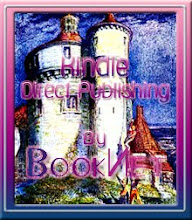Literary Collections > General
Description
by Charles HardwickPREFACE.
Our nursery legends and popular superstitions are fast becoming matters of history, except in the more remote and secluded portions of the country. The age of the steam engine, and the electric battery, and the many other practical adaptations of the triumphs of physical science, is apparently not the one in which such "waifs and strays" from the mythical lore of the dim and distant Past are very likely to be much sought after or honoured. But now that the light of modern investigation, and especially that ray furnished by recent discoveries in philological science, has been directed towards their deeper and more hidden mysteries, profound philosophical historians have begun to discover that from this apparently desolate literary region much reliable knowledge may be extracted, leading to conclusions of the most interesting and important kind, with reference to the early history of our race. The labours of the brothers Grimm, Dr. Adalbert Kuhn, Professor Max Müller, the Rev. G. W. Cox, and others, have recently received considerable attention from philosophic enquirers into the origin and early development of the people from whom nearly all of the European, and some of the Asiatic, modern nationalities have sprung.
It is found that many of these imperfect, and sometimes grotesque, traditions, legends, and superstitions are, in reality, not the "despicable rubbish" which the "learned" have been in the habit of regarding them, but rather the crude ore, which, when skilfully smelted down, yields, abundantly, pure metal well worthy of the literary hammer of the most profound student in general history, ethnology, or the phenomena attendant upon psychological development.
Professor Henry Morley, in the chapter on Ethnology, in his "English Writers," after noticing "how immediately and easily particular words, common in their application, would become available for common use," and "how often images of the seen would become symbols of the unseen," truly says, "The world about us is not simply mirrored, but informed with a true soul, by all the tongues that syllable man's knowledge and his wants. The subtlest harmonies of life and nature may lie hidden in the very letters of the alphabet."







 "
"






 3:58 PM
3:58 PM
 BookNet
BookNet


 Posted in:
Posted in: 


0 ความคิดเห็น:
Post a Comment